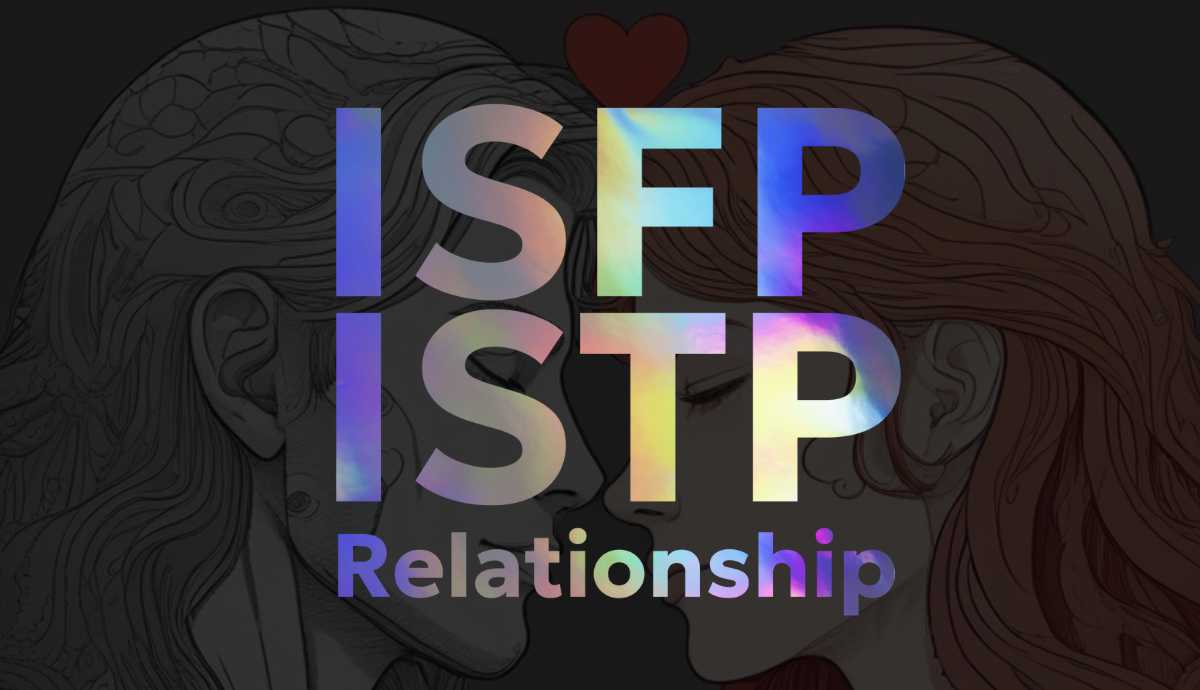There are some people who cannot decide if they are INFJ or INTJ. I have come across people who have succumbed to typing themselves as INxJ, a hybrid that cannot exist according to cognitive function theory. If you are one of those people, it is likely that you believe your T and F are very close to each other or that they are balanced. But as I have mentioned in a previous post, the MBTI is not a trait theory and does not measure preferences quantitatively. I will compare the two types and show key differences between the two to help you decide.
As a shorthand form, we use NT for The Rationals and NF for The Idealists based on the letters common to all types in each temperament. You can read more about the theory here.
Generally,
INFJs are attracted to the animate world and strive to change the world for the better.
INTJs pursue intellectual interests and prefer to deal with the impersonal aspects of the world.
This distinction made by animate and impersonal is similar to the general difference between T and F types. If you strongly identify with The Rationals or Idealists, you probably belong to that temperament. You may find that you share characteristics with both Rationals and Idealists. There are many intellectuals (Ludwig Wittgenstein, Arthur Schopenhauer, Plato…) who would probably test INFJ and Idealists (Jean-Paule Sartre, Sigmund Freud) who would probably test INTJ. I find that INTJs may have an easier time deciding their temperament than INFJs who may classify themselves as a hybrid of both temperaments. I will discuss the reason for this in the next section.
Cognitive Functions
Dominant: Introverted Intuition
Ni (Introverted Intuition) is primarily an unconscious process that surfaces with solutions to novel problems and insights. It works by abstracting and extracting symbolic meaning from everyday experience and combining it with unconscious archetypes to provide insight and “meaning”.
Make sure you are certain if Ni is your dominant function. Some INFPs identify with both INFJ and INTJ and may decide they are somewhere in between. You may want to look at the previous article INFP vs INFJ if you also think you maybe INFP.
As dominant Ni users, INFJs and INTJs are driven by a desire to realize their internal vision in the external world. However, unlike other types that share dominant functions (for example, ISFP and INFP), the dominant function expresses itself in differently in the two types.
The two types experience Ni in different ways.
In INTJs, Ni is experienced as “aha” moments of insight. They are natural problem solvers so it also serves as a system builder that connects patterns and predicts their future consequences. Ni is cerebral in the INTJ and it helps them think in novel ways. Some INTJs report thinking in images, symbols, connections and other processes that are difficult to verbalize. It seeks to explain the reason behind phenomenon and get a clear vision of how things work. It fuels the INTJ with curiosity and creates their interest in the sciences. It is attracted to complexity and problem-solving.
In INFJs, Ni is visceral and presents itself primarily through feelings. They experience it as strong visions of the future and very strong feelings about people and situations. It also helps them the INFJ in academic environments or when dealing with intellectual problems. However, Ni is more likely to provide the final result than consciously guiding the problem solving process as in the case of INTJs. It is primarily driven by finding meaning in the world and creates interest in philosophy and the arts. It is attracted to abstractions and “the whole”.
If you believe your thought process is guided by visual imagery and relationships, you are probably INTJ.
If you believe your feelings about things help you understand the world, you are probably INFJ
Auxilliary Function: Extroverted Judging
INFJs and INTJs share the same perceiving functions Ni and Se, but have completely different judging functions (Fe/Ti and Fi/Te). It is rare, if not impossible to have full use conflicting judging functions (Te and Fe, Ti and Fi) simultaneously because they are diametrically opposed.
Here is the function order for the two types:
INFJ: Ni Fe Ti Se
INTJ: Ni Te Fi Se
As introverted dominant perceivers ([P]i), INFJs and INTJs have an auxilliary extroverted judging function, Fe and Te respectively. The letters T and F are determined by the most dominant extroverted function.
Te (Extraverted Thinking) creates strategies and makes decisions based on effectiveness, efficiency, sustainability and other objective measures of performance. It is pragmatic and is useful for planning, logistics, time/resource management and other tasks that require “real world” problem solving. It validates its decisions based on empirical data and quantitative measurements and constantly searches for areas of improvement.
Fe (Extraverted Feeling) makes decisions based on values and their direct effects on people. It primarily deals with creating social harmony and adjusting attitudes and behaviors to assimilate into one’s social environment. It is useful for diplomacy, empathy, and navigating social circles. It works in a similar fashion to Te, except it asks “Is this acceptable?” instead of “Does it work?”. It manifests itself in social graces, politeness and sensitivity towards others’ feelings.
If you are Ni dominant, you utilize one of these functions whenever you engage in an activity in the external world. Your extroverted judging function is also the function that is most visible to the external world. Therefore, in the rare case that you cannot determine which one you use, asking someone else may help.
Theoretically, you cannot consciously use more than one function of the same category. You can have only one of these functions in the first four functions of your type. [P]i, [J]e, [J]i, [S]e. It may be possible to use Fe and Te at the same time but it would create internal conflict because the two functions work in opposite ways.
If the descriptions are not sufficient, consider how you would act in these scenarios:
You are a manager and you get the impression that an employee is not performing well (Ni). You decide to confront the person.
Do you look at his quality of work, throughput, time sheets, or other measure of performance for evidence? (Te)
Do you look at his work ethics, dedication, loyalty, or whether he is trying his best? (Fe)
You are shopping for electronics at a retailer and cannot decide between two brands of the same item. The two items are similarly priced and provide the same functionality.
Do you compare the technical specifications to look for reason why one is superior to the other? Do you consider the durability and longevity of the material the item is made of or check for warranty? (Te)
Do you choose the one you think is aesthetically pleasing or “fits in” with your other electronics? Do you ask friends/family if they have used it before? Do you ask a person, friend or look up reviews to see what other customers thought? (Fe)
You receive a call from a telemarketer who tells you that you are the lucky winner of a free travel package. You have told them you are not interested but the caller insists, which gives you a hunch that it may be a scam. (Ni) You are not busy but want to end the call.
Do you hang up on the person? Do you ask the caller about the business model and try to discern the “catch” behind the offer? Do you research the company online or ask for legal verification of its legitimacy? Do you confront the caller about his/her tactics and ask how they got your number? (Te)
Do you gently state your concern to the caller? Do you check if his/her voice and speaking style “feel” sincere. Do you create an excuse for why you can’t talk at the moment? Do you empathize with the caller because he/she is just another person trying to earn a living? (Fe)
If you still don’t see a clear preference for either, you maybe very introverted or may not have had the opportunity to develop your extroverted judging function [J]e.
The next part which discusses the tertiary difference will probably help you decide if you prefer Ti or Fi for [J]i.
Want to know your astrology placements? You can generate your astrology chart here with our free birth chart generator tool.
source: psyphics
- The 8 Cognitive Functions Explained - May 17, 2025
- American Presidents Ranked By Zodiac Sign - January 20, 2025
- ESTP and ESFP in love: 6 Dynamics of Their Relationship - September 4, 2024





